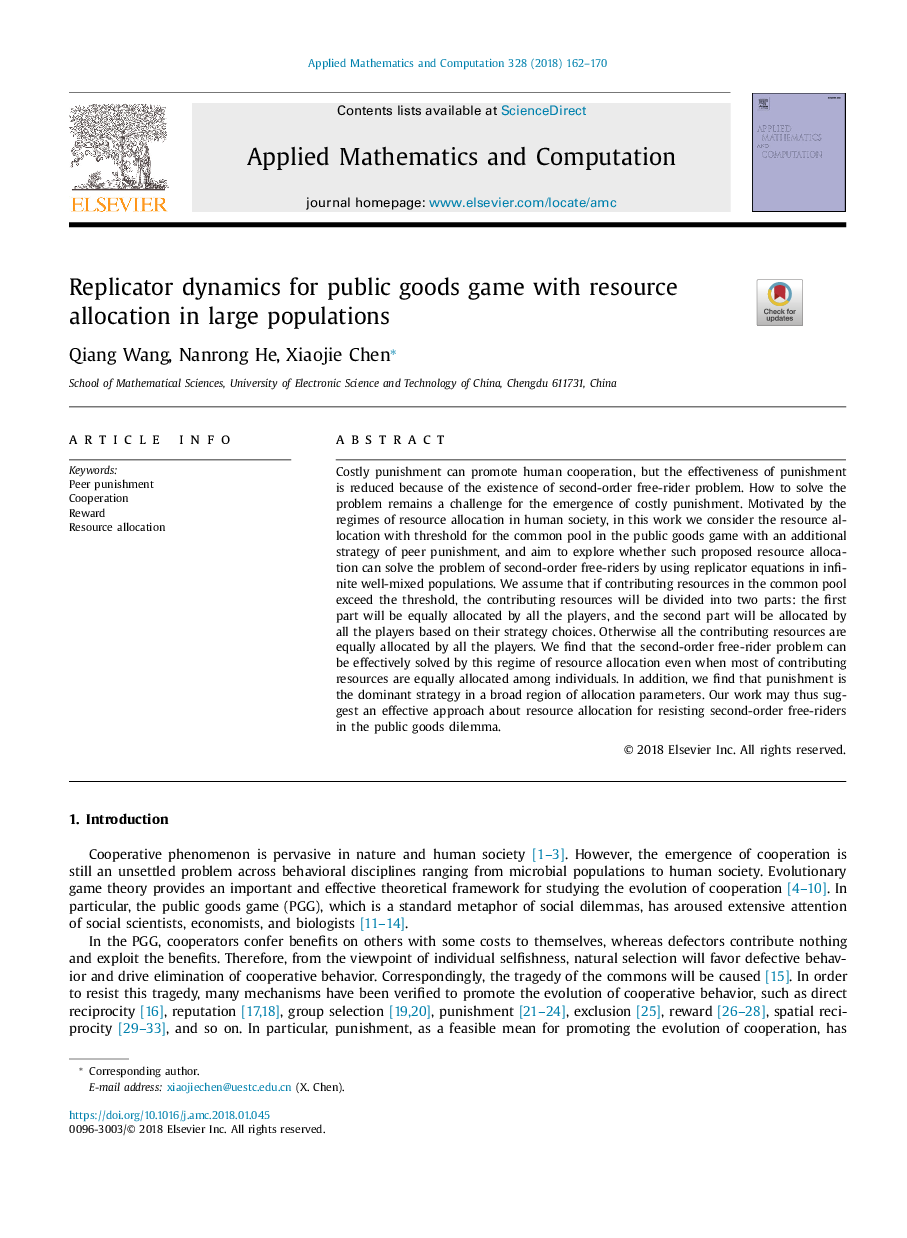ترجمه فارسی عنوان مقاله
پویایی تکراری برای بازی کالاهای عمومی با تخصیص منابع در جمعیت های بزرگ
عنوان انگلیسی
Replicator dynamics for public goods game with resource allocation in large populations
| کد مقاله | سال انتشار | تعداد صفحات مقاله انگلیسی |
|---|---|---|
| 126652 | 2018 | 9 صفحه PDF |
منبع

Publisher : Elsevier - Science Direct (الزویر - ساینس دایرکت)
Journal : Applied Mathematics and Computation, Volume 328, 1 July 2018, Pages 162-170
ترجمه کلمات کلیدی
مجازات همکار، همکاری، جایزه، تخصیص منابع،
کلمات کلیدی انگلیسی
Peer punishment; Cooperation; Reward; Resource allocation;
ترجمه چکیده
مجازات های سنگین می تواند همکاری های انسانی را ارتقاء دهد، اما تأثیر مجازات به علت وجود مشکل مرتبه دوم فرمانروایان کاهش می یابد. چگونگی حل این مشکل چالشی برای ظهور مجازات های پر هزینه است. با توجه به رژیم های تخصیص منابع در جامعه بشری، در این کار، تخصیص منابع را با آستانه برای استخر مشترک در بازی کالاهای عمومی با استراتژی اضافی مجازات همکار بررسی می کنیم و هدف این است که آیا این تخصیص منابع پیشنهاد شده می تواند حل کند مشکل از سواران آزاد مرتبه دوم با استفاده از معادلات تکراری در جمعیت نامحدود مخلوط. ما فرض می کنیم که اگر منابع کمک کننده در استخر مشترک بیش از آستانه باشد، منابع کمک کننده به دو بخش تقسیم می شوند: بخش اول به طور مساوی توسط همه بازیکنان اختصاص داده می شود و بخش دوم توسط همه بازیکنان بر اساس آنها انتخاب استراتژی در غیر این صورت تمام منابع کمک کننده به طور مساوی توسط همه بازیکنان اختصاص داده می شود. ما دریافتیم که مشکل رفع مشکل دوم مرتبه دوم به طور موثر توسط این رژیم تخصیص منابع حل می شود، حتی زمانی که اکثر منابع کمک کننده به طور مساوی بین افراد اختصاص داده می شود. علاوه بر این، ما متوجه می شویم که مجازات استراتژی غالب در یک منطقه وسیع از پارامترهای تخصیص است. بنابراین کار ما ممکن است یک رویکرد موثر در مورد تخصیص منابع برای مقاومت در برابر طرفداران فرعی مرتبه دوم در معرض کالاهای عمومی را نشان دهد.

